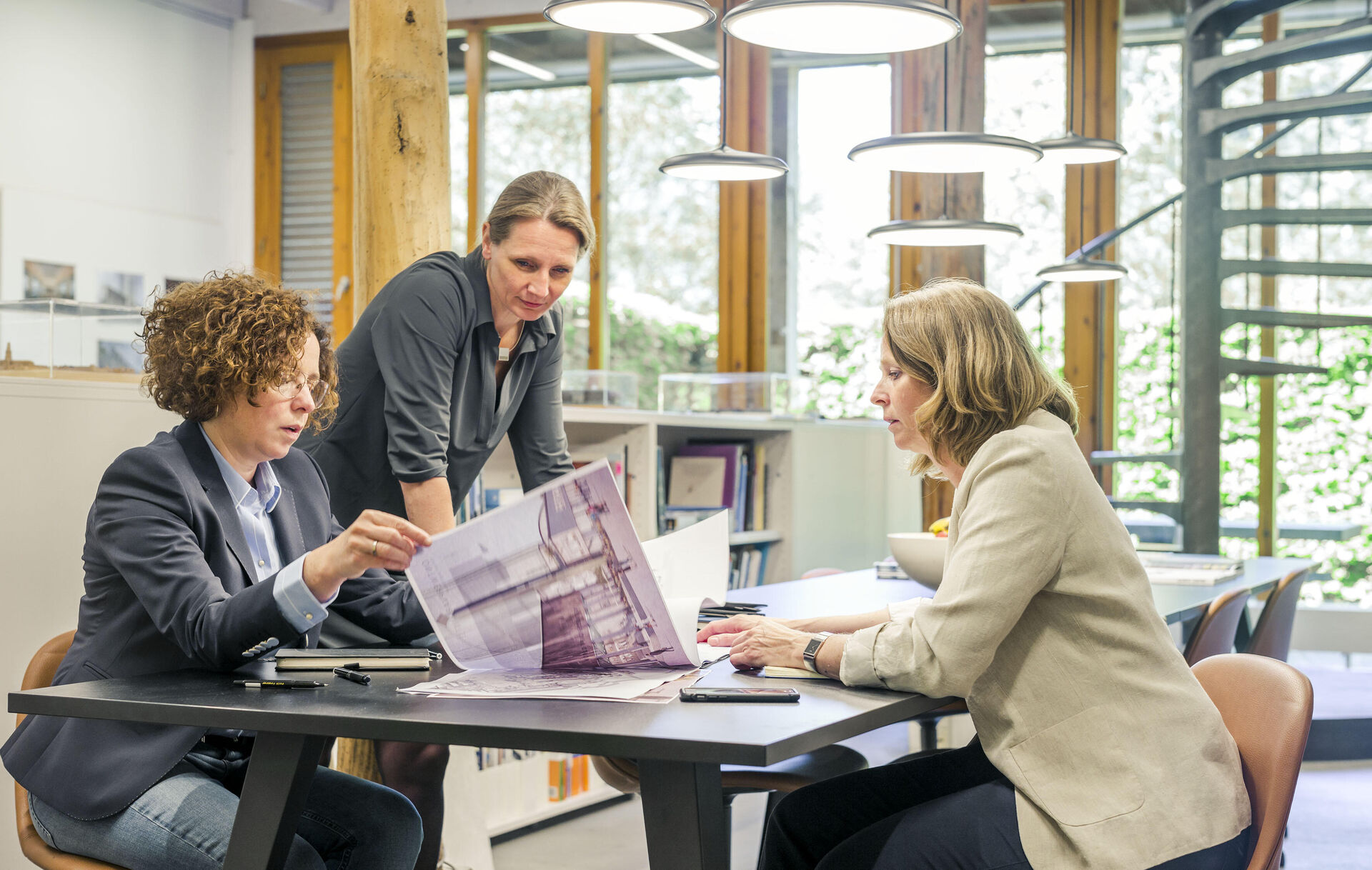BiermanHenket are happy to take on projects of all sizes, from a town-planning scheme to a single building or interior design. Each assignment is unique and starts with intensive consultations and an analysis of requirements and preferences. If required, we will produce a design brief. We will carry out an analysis of the history and values of the site. The design stage will produce variants so that we can work with stakeholders to arrive at optimally supported decisions. Three-dimensional BIM models are used from the start of the design process, producing a kind of digital prototype of the building. This enhances the visibility for all stakeholders, as it is easier to imagine the expected result.
A good design and building process, where all partners play an equal part - client, users, advisers and performing parties - is of the essence in achieving a high-quality, sustainable design that matches the pre-set building budget. During this process, we aim to design in an integrated way, encompassing space, time and budget.
The interaction between people is one of the guiding principles of our work. We are experienced in working with a variety of target groups and on complex programmes. Intensive collaboration with the client and users is of the utmost importance, enabling us to create an environment where everyone is happy and can function at their best.
Potential Deliverables
Design brief
Master plan
Building design
Interior design
Urban planning scheme
Restoration plan
Feasibility study
Cultural-historical survey
Project management
Visual quality plan
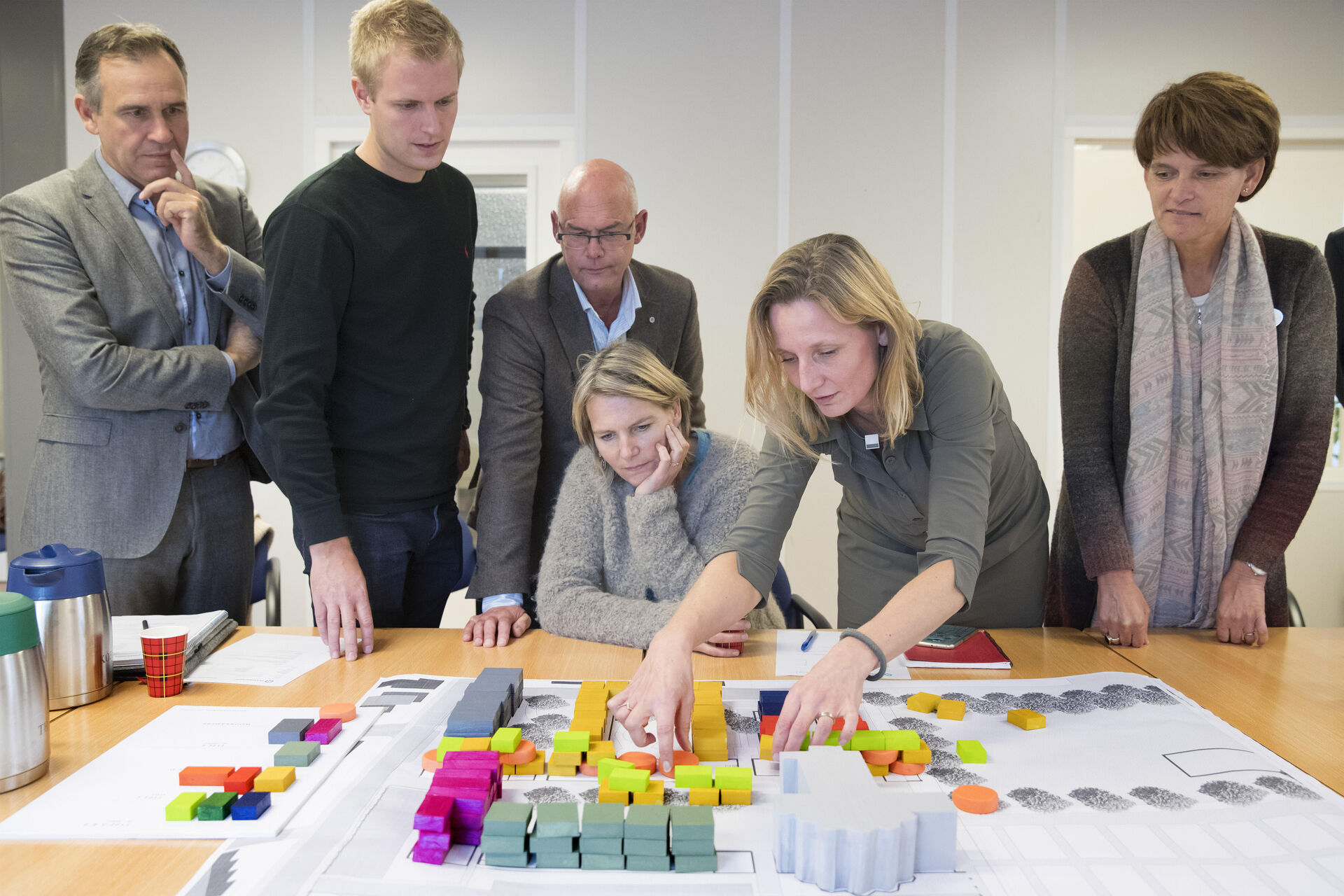
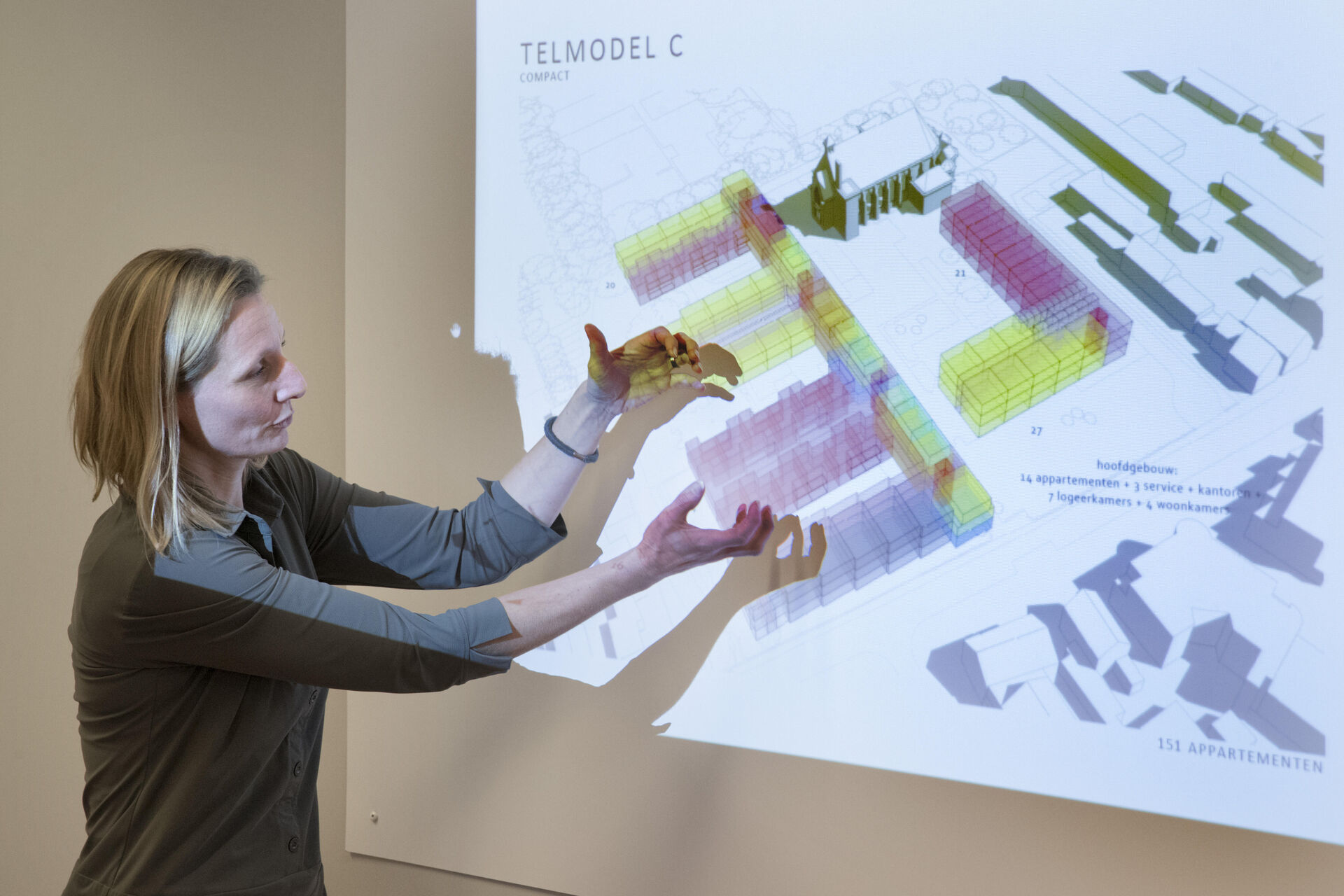
‘Intensive collaboration with the client and users is of the utmost importance, enabling us to create an environment where everyone is happy and can function at their best.’
Interior
We are highly experienced in interior design and produce designs for professional clients as well as private individuals. We are experts at restoring historic interiors and modernising old interiors. We particularly enjoy designing for public interiors which are heavily used.
Quality in relation to budget and planning
We are used to working to clear financial frameworks and strict time schedules. The key premise for any assignment is that the design meets the design brief as well as the client’s ambitions and that it matches the pre-set budget. Considerations will have to be weighed up for each element of the design brief on the basis of integral cost management. For each stage, these considerations are presented in variants with a clear vision of the relationship between quality and cost. Cost calculation happens not just at the end of a particular stage - all design decisions are continually monitored. The advantages of such an approach are that it is possible to achieve an optimal balance between quality and the financial framework and that financial risk is limited. It also produces insight into the threats and possibilities of each stage of the building process. Integral cost management starts at the preliminary design phase, where the operational stage is explicitly included in the considerations: Total Cost of Ownership.
Feasibility study
BiermanHenket are able to carry out a feasibility study into the renovation and transformation of existing buildings and building ensembles. Such a study includes an inventory and analysis of functional, technical, cultural-historical and sustainability aspects of the project. We have been working on the renovation and transformation of existing buildings for more than 40 years and have built up in-depth understanding of those aspects which are important for a successful transformation strategy. Flexibility and future value are explicitly included in a feasibility study. We will investigate the technical structure and architectural condition of a building. A building engineering record can be produced and the possibilities for improving and adapting the building can then be formulated. Building engineering interventions are tested for their technical feasibility and estimates are produced of costs and payback periods. The in-depth technical understanding of existing buildings provides insight into options for sustainability measures including energy reduction and the use of sustainable energy. Both building engineering and systems technological measures may be considered (thermal energy storage, heat recovery, façade insulation, secondary windows, etc.).
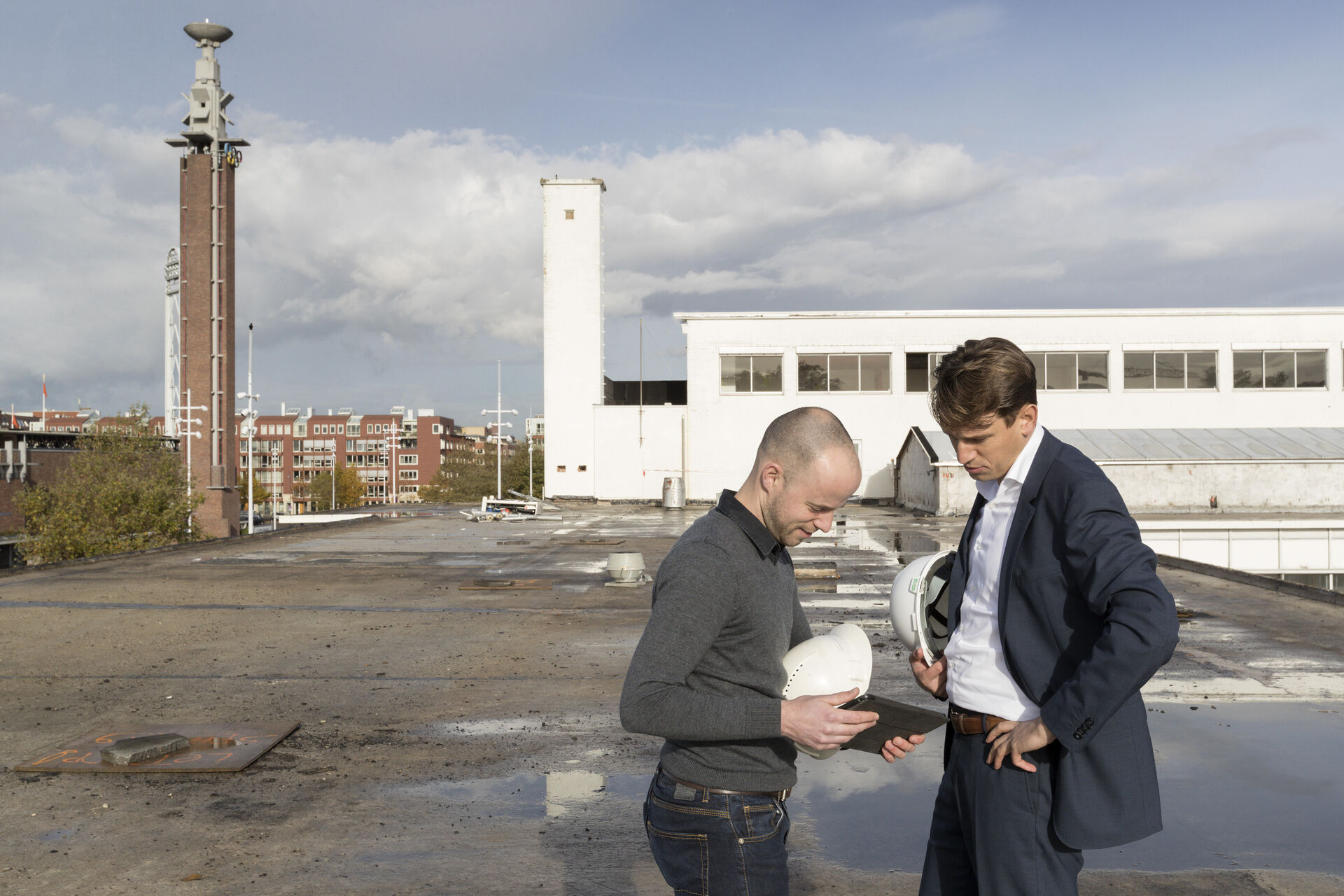
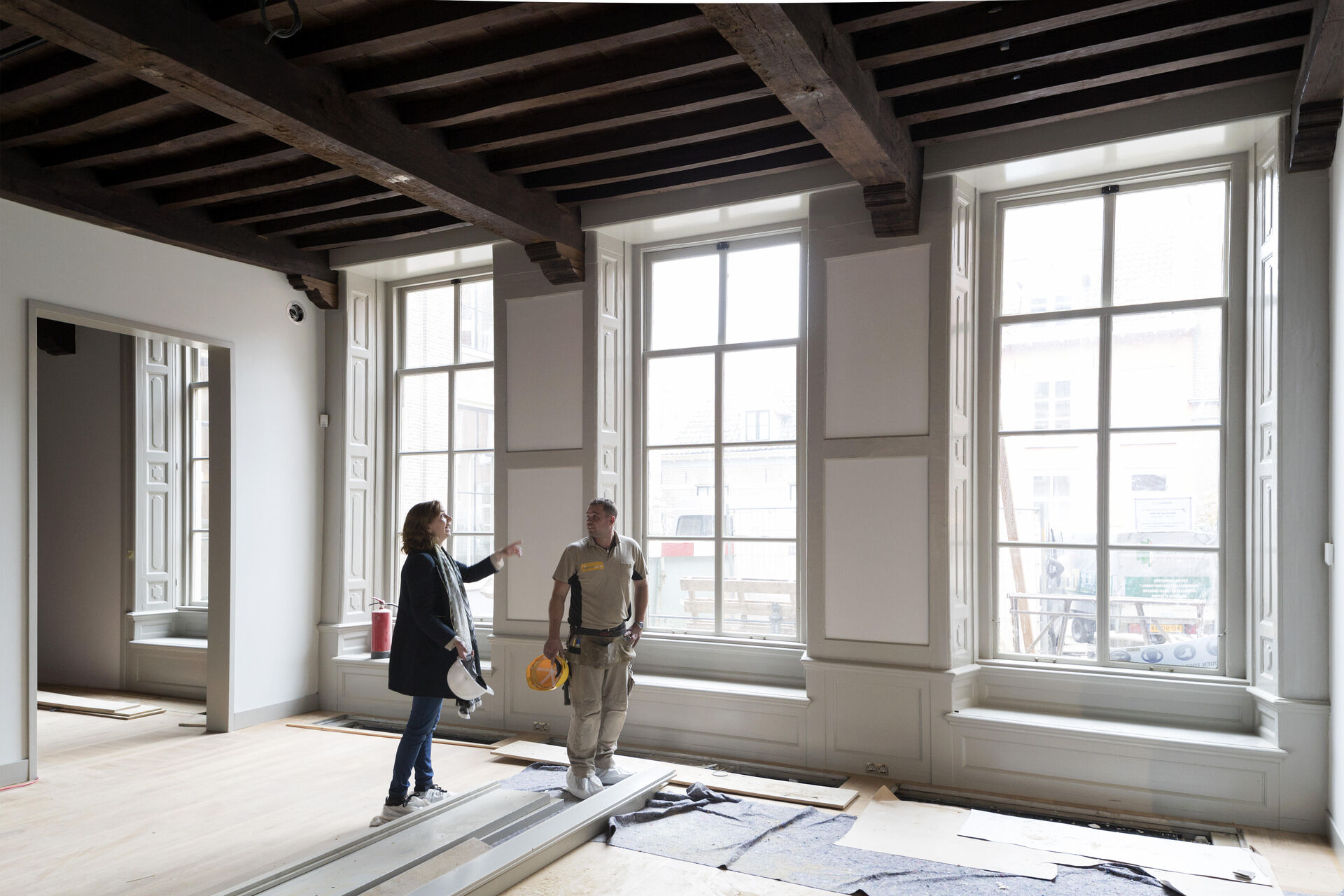
‘We have been working on the renovation and transformation of existing buildings for more than 40 years and have built up in-depth understanding of those aspects which are important for a successful transformation strategy.’
Cultural-historical survey
BiermanHenket are able to produce cultural-historical surveys for single buildings as well as building ensembles. Research into the history of a building in its current context is carried out in order to determine the cultural-historical, architectural, urban planning and interior values of a building, in consultation with the Netherlands National Heritage Board. If required, the findings of the survey can be used as a basis for the starting principles for renovation or transformation of the building concerned. In that case, the survey will act as a source of inspiration rather than a limiting factor. The cultural-historical study will follow the guiding principles formulated by the Netherlands National Heritage Board. As an architectural firm, BiermanHenket will also explicitly study the urban planning and spatial architectural values, translating them into practical recommendations. In addition, a cultural-historical survey can be combined with a building engineering study and a technical survey.
Project Management and Supervision
In a number of newbuild, renovation and transformation projects, we are responsible for project managing the building process. The advantage of combining design, the production of technical detail and project management is that it is extremely efficient, resulting in savings on consultancy costs and limiting failure costs. We are able to organise, prepare and plan a building process from the first initiative until final completion. The primary role of a project manager is to monitor time, money and quality and this will primarily be based on the necessary organisation and information during the various stages of a project.
